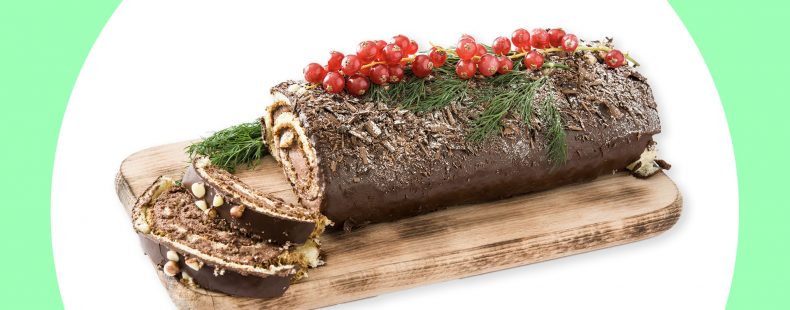Nat King Cole famously sang, “Jack Frost nipping at your nose / Yuletide carols being sung by a choir,” and when we deck the halls, we’re expected to “troll the ancient yuletide carol.” But amidst the merriness and fa-la-la-ing, did you ever stop to ask yourself exactly what a yuletide is? Or why some people use the word yule as a synonym for Christmas?
There’s more to yule than the goings-on of December 25. Let’s examine this word.
WATCH: Can You Guess What These Christmas Carol Words Mean?
What is yule?
Yule is a noun meaning “Christmas, or the Christmas season,” which is the Christian holiday to celebrate the birth of Jesus. However, yule can also refer to the celebration of the winter solstice that’s observed in some Pagan traditions.
In fact, the word yule comes from a name for an ancient 12-day festival, celebrated by Germanic peoples, around the winter solstice in December and January. But by the 900s (yes, that long ago), yule was already mapped on the Christian celebration of Christmas and its surrounding festivities.
The word yule develops from the geōl, an Old English word referring to Christmas. Going further back, yule is related to the Old Norse jōl, the name of the pagan winter feast and also another word later applied to Christmas.
Learn even more about the word yule in our extended article on the word.
When is yule?
Yule, or the original 12-day solstice festival celebrated by the ancient people of Scandinavia, is considered one of the oldest celebrations of wintertime in the world. It begins the shortest day of the year on the winter solstice and ends 12 days later. This year, that would mean yule marks December 21, 2023 through January 1, 2024.
However, if you’re using the word yule to refer to Christmas, you’re referencing a different time period altogether. Yule can refer to both Christmas Day (December 25) and the broader Christmas season. Similarly, the word Christmas can refer to December 25 itself, but it can also refer to the whole Christmas season.
Other terms for the Christmas season are Christmastime and Christmastide, where tide refers to an old term meaning “a season or period in the course of the year, day, etc.” In the Christian church, tide historically has a stricter sense of “a period of time that includes and follows an anniversary, festival, etc.”
What is yuletide?
As you may have guessed, because tide means “a period of time that includes and follows an anniversary, festival, etc.,” yuletide is another way of saying “the period of time that follows yule.” So, you can call “Christmas” yule and “Christmastime” yuletide, but you wouldn’t call “Christmas Day” itself yuletide.
Increase your festive knowledge by learning more about the word yuletide, here.
How to use yule and yuletide
In addition to saying “Cool yule” à la Louis Armstrong (which we sincerely hope you do), you can also use the terms this way:
- Gathering at my grandmother’s house to share a holiday meal is one of our most beloved yuletide traditions. (Here, yuletide refers to the entire holiday season.)
- Playing the role of Santa could fill even a grinch with the spirit of yule.
- The real yule day surprise? The heavy snow that fell just before nightfall. (Here, yule refers to Christmas Day.)














